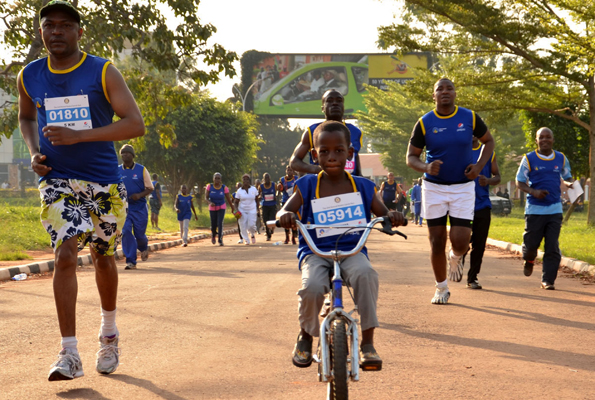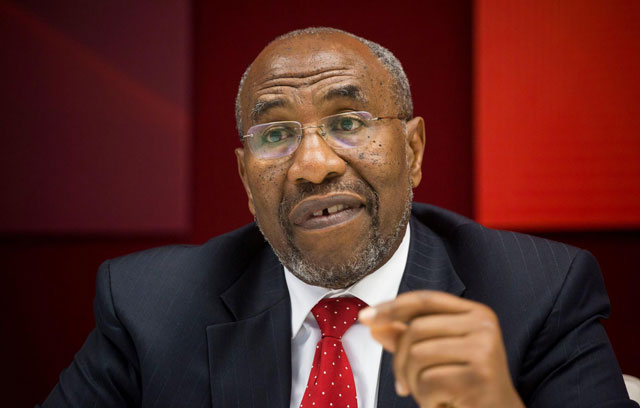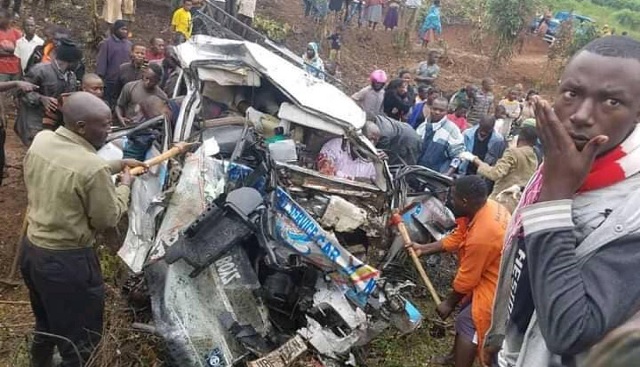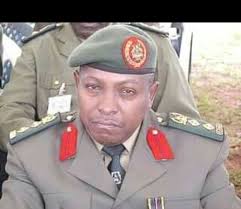Thank you if you are running for charity this week. As the Baganda say Obulaamu bwe Bugaga or true wealth is found in being healthy. The Kabaka birthday run is to increase awareness on obstetric fistula and raise funds for Kitovu Hospital, one of the centres that treat the condition.
The answer to fistula is improving access to proper maternity care. Simple right? Apparently not. Cracking the code of how and when good and sustainable public services operate is the holy grail of the development process. In Uganda and around the world, the record is as uneven as the parable of the sower.
Earlier this week, even as my president made surprise visits to the national hospital, a former colleague at the Daily Monitor, Peter Nyanzi posted this note on his FaceBook page
“ My bro’s wife lost her newborn baby at Mulago hospital. I’ve just come back from burial. The mother could not attend the burial because she is still in bad shape. I lost a handsome nephew because of negligence. She was made to over stay in labour. If they had performed a CS earlier, the boy would be alive and kicking. Feeling both sad and disappointed.”
Stories like his are far too common as the comments to the post showed. Where access is available, there is the problem of malpractice but we shall return to here. The public attitude seesaws from bewilderment and outrage to a simmered down hopelessness. I suspect those with the authority over the public purse look to this attitude of “ this is how things work in Uganda” as some sort of political anesthesia that excuses the near criminal failures of the public health response.
The saddest story to come out of the country this week is the breakdown of the radiotherapy machine at Mulago Hospital, the main national referral centre. The hospital itself is a repository of the frustrating pace of the expansion of public medical services for a growing population. The sob stories are a million but nothing as heart-breaking as little children forced to endure what is essentially torture as the prohibitive cost of their cancer treatment and the lack of technical facilities condemn most to certain, and painful death.
It’s a tragedy for rich and poor alike.
On any day in the ever-worsening traffic jams blaring sirens capture this contradiction. They are ferrying the growing army of big men and women like a merry go round from office to office, worse in the political season. They also rush patients from one hospital to another. Most ambulances are not equipped as emergency vehicles but rather transport a patient for radiotherapy there or a better scan here or even to get a drug administered at a clinic that is cheaper. Around Mulago especially in Wandegeya is the black market capital for cheaper drugs. The gridlock on the road and in the sketchy quality of public services produces some of the most tragically comic episodes that Ugandans stoically bear with a shrug, after the vigil and the funeral.
A lawyer from a prominent family recently swapped these stories with me. His well-connected father, a towering academic was at death’s door with a blood infection. He needed a transfusion badly. However blood had “run out” at the National Blood bank. To spare you further suspense in the end his father died. His family in trying to save him had called the health minister at the time, who called the head of medical services. In the dead of night he had to drive to the Blood Bank where emergency supplies were kept for special cases. The head of health services had called her guy at the Bank. The whole affair was like a criminal enterprise. He says the attendant emerged in the darkness like a ghost (the place is poorly lit and lack of electricity is one of the reasons supplies are corrupted) and wordlessly him a package.
“ He did not even ask me for identification” he remembers.
Thanking his god, he headed to Mulago where his father was admitted. In the hospital ward there were many families who needed transfusions and deaths were piling up. So when he pulled up with his precious cargo he was met with resentment from the staff, partly because of his pedigree he said. Coming as he did from the “ruling” tribe (if they only knew his troubles), they felt it was unfair that he got to save his own or perhaps somehow that the crisis that is the hospital was his problem to fix given his status as seen from the fact that he miraculously obtained blood where none was said to be available.
He stomached the resentment because what would a good son do? However the attendants told him the blood needed to be prepared before the transfusion would take place. He was advised to go home since the process would take a while.
The next morning when he came back his blood was gone. “ That blood was yours?” one nurse said. “We used it on someone who was dying”.
We were seated having lunch at one of Uganda’s leading hotels. There was me, the lawyer and a defense intellectual who also supports the ruling party. I was preparing to travel to the United States and shared with them one of the many sick stories that I had the misfortune of hearing.
The first was how I had been given an assignment to write the obituary of a senior military figure who had been hospitalized (my editor had called to say he was poisoned). Since the private hospital was near the office and once I had finished my draft I then left to check on the patient, with a newsroom colleague who hailed from his area. There was heavy security at the place. There along with a queue of other press and government dignitaries we had talked about the problem of selectively offering assistance to government officials once they were sick. The big man was later flown to Nairobi where he died.
Some years later I met into a Ugandan medical doctor, a cardiologist at Schiphol airport. We chatted a bit but later realised we were on the same connecting flight after we arrived in New York. Time at airports is for me an enterprising look at efficiency. There is little room for era with metal boxes carrying millions of people thousands of feet in the air. If only countries were run in the same fashion. During the long transit the doctor, in his mid-thirties, asked me how (and why) I continued to “remain” in Uganda doing the sort of journalism I do.
He was completing residency at an American hospital in the East Coast and planned never to work in Uganda. According to him many of his classmates at Makerere had left the country for Rwanda and South Africa. The lucky ones had found placements in Europe, the United States or even the Middle East. One event apparently had made such a bad impression on him during his training.
It had caused him to evaluate what doing the most good meant for a medical professional.While interning at a senior level in Mulago his team received a high-level government official, an aristocrat of Uganda’s financial sector. They had to a house visit but the official was clearly going to die without specialized equipment to sustain his vitals and his heart. The powers that be briefly discussed flying him to the Aga Khan hospital in Nairobi but he and other doctors thought this government official’s condition was so frail that this option was not possible. It was then decided that since the country did not have the life support machines they had eventually to fly in the entire unit needed to save the life of this lucky technocrat. This he says is how the hospital had procured some of the major pieces of technology that in his craft were considered necessary for a full cardio unit.
Why did it take the near death of this one man for this to happen?
It reminded me, I told him, of what a weatherman at the meteorological department had narrated to me when I asked him about why the institution was not giving up to date information to the public on major weather patterns. It was in the middle of one of Uganda’s disastrous landslides in the east. Rain so heavy melted the mountainside like heat licking the side of an ice cream cone.
His office he said had a zero development budget, only a recurrent one (I was learning these terms for the first time then). The most demanded out of it was to issue a security weather assessment to facilitate flights by the president and other important government officials. “ What is left is for paying salaries and buying newspapers. In fact most of us report to work mostly to read the paper”, he said.
One lesson from good public infrastructure is that it presents a political dilemma. If a great highway system is present politicians lose the opportunity to complain about how bad the roads are – and how they are going to solve it. If a great medical system functions- then opportunities to cut ribbons and offer donations to select citizens fizzle out. In the same vein where institutions responsible to producing and maintaining good public works on behalf of engaged citizens are absent, you will find politicians and privileged classes hoarding scarce resources while standing at the front of the pew as benevolent uncles and aunties ready to do good.
But mostly bad reality becomes the only reality and it is difficult to advocate outside of it. Unless and until those conditions affect those with the most power to change things.
That is a sick political logic but it is sadly also a reality. The patients of Mulago can expect that if a senior patient were to need urgent radiology, efforts would be made to make it possible and it can remain for the rest of us to use.










